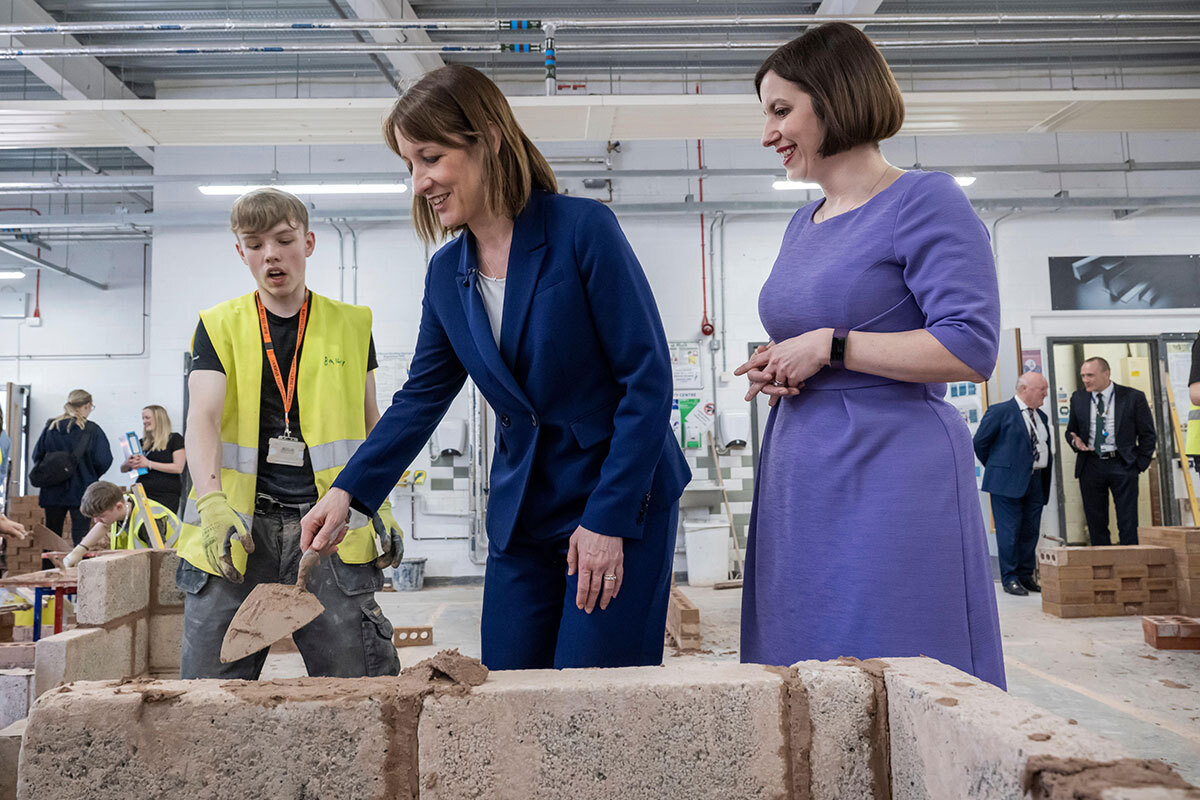Reeves pledges £600m to tackle construction skills shortage
Chancellor Rachel Reeves has pledged £600m of investment to tackle Britain’s construction skills shortage.

Chancellor Rachel Reeves (left) attempts bricklaying during a visit to Bury College with education secretary Bridget Phillipson on Thursday (picture: Alamy)
Related stories







